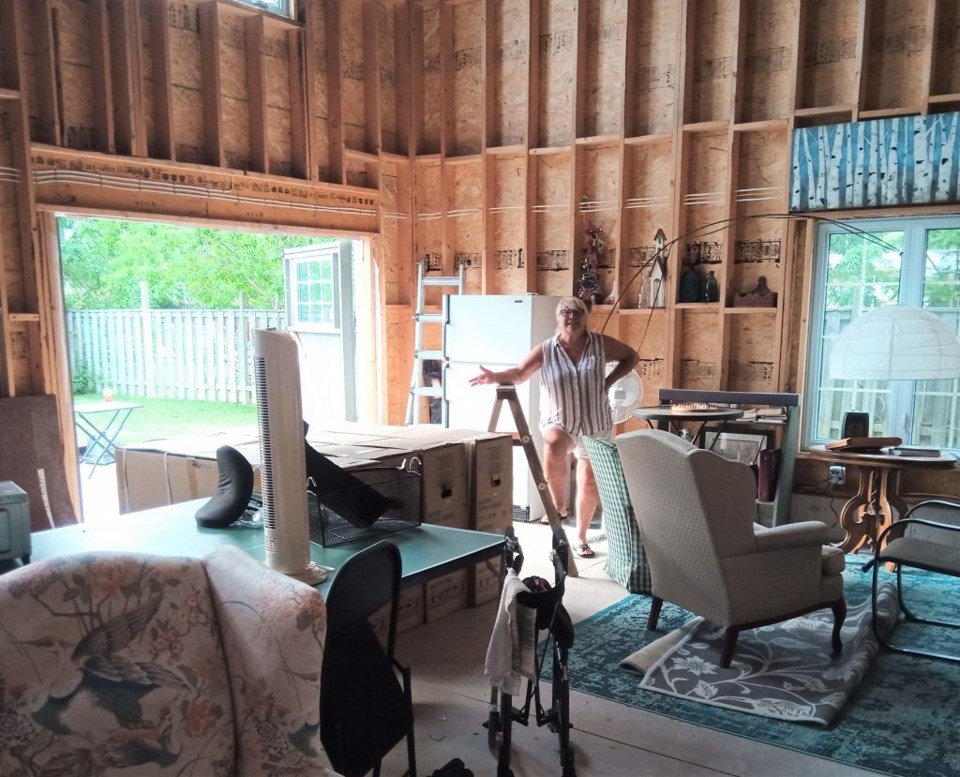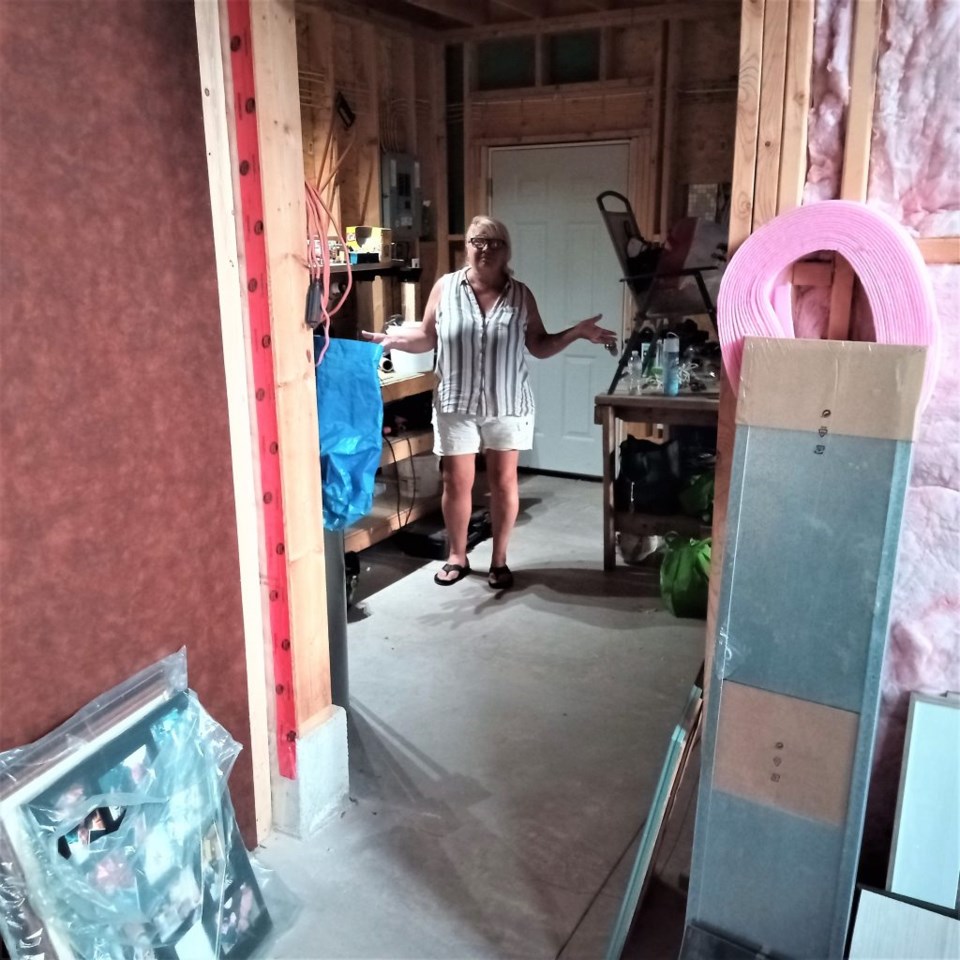
Owners of a Dorchester Street bed and breakfast are into the second season of struggling to understand why they have been denied their licence to operate.
They are seeking answers, a monetary settlement through the court system, and have recently asked the Niagara Regional Police to investigate if criminal charges should be laid against the town.
Jennifer Elliott and Colin Telfer operate the ESkoot business on Niagara Stone Road, and have two rooms they rent out in their ESkoot Bed and Breakfast.
They had four successful seasons with their B&B, but ran into trouble when their home required new inspections by a bylaw officer and fire inspector for a 2020 licence renewal.
In her affidavit to the Ontario Superior Court of Justice Elliott says after working for the Niagara-on-the-Lake Chamber of Commerce for almost 20 years, assisting in the growth of the community’s bed and breakfast industry and often helping owners with various issues and challenges, she felt she was knowledgable about the licensing process.
It unfolded as expected, Elliott says, with a bylaw officer coming by and inspecting the rooms for rent, the facilities in their home, and a visual inspection of the outside of the home and garage, which was new. She was given a verbal confirmation that the inspection had been successfully completed and no changes were required.
The fire inspector asked them to relocate their smoke alarms, and recharge or purchase new extinguishers, which they did.
They paid their fees, confirmed their insurance, and waited for their licence to arrive.
It didn’t.
Instead, they were notified by a bylaw officer that a neighbour had complained that they were using their garage as living space. They were told the garage needed to be inspected.
The garage is not heated, there is no air conditioning or insulation, and in the summer it’s often more than 100 degrees F in there, says Elliott.
“Everyone knows we don’t live in our garage,” she added.
She says they knew “beyond a shadow of a doubt” that no neighbour truly believed they were using the garage as a dwelling, and felt if there was a complaint, it had to be malicious. That the town was aiding that harassment didn’t sit right, she says, so after thinking about it, “we said no on principle, and were immediately told I could be charged with obstruction, which is a criminal charge. I think that was the point of no-return in my mind. I was insulted, hurt, angry, baffled — you name it.”
The three-bay garage, built with all the permits required from the town, has a car in one bay, and a second bay looks like any other garage with tools and work bench.
The third bay is Elliott’s “she-shed,” with a fridge, an old, free sofa they picked up that has the stuffing coming out of it, and a second-hand pool table she thought the grandkids might use when they visit, although that hasn’t happened because of the pandemic.
But Telfer, a retired detective with Peel Regional Police, was disturbed that they were being asked to allow the bylaw officer entrance to their garage, their property, without a legal reason to do so.
What followed, they said, was an eight-month series of emails and letters, including them hiring a lawyer who wrote to the town on their behalf requesting their B&B licence be issued. Telfer and Elliott continued to believe the town was being used by a disgruntled neighbour. They told the bylaw officer that to inspect their garage, he would have to conduct an investigation and get a warrant.
Last summer, in an effort to resolve the issue, Elliott wrote a letter to the lord mayor and town councillors asking them to intervene, but nothing further happened, and no licence was granted.
Lord Mayor Betty Disero, whose property backs on to Elliott and Telfer’s lot, says she knew the garage was being built, and that, after receiving Elliott’s letter, believed there to be a problem between them and a neighbour.
She told The Local she and council members are told by the planning department not to intervene for people with legal disputes. If they do, in an effort to help, it could end up being a problem for the town should the issue go to court, Disero says.
In January, anticipating opening their B&B this season, Telfer and Elliott hired a lawyer to work out a solution with the town. No further action had been taken, with no sign of an investigation or charges. Their lawyer stated the only “lawful course of action” was for the town to issue a B&B licence.
The response, in a letter from the town’s lawyer to theirs in February, was a surprise.
Over the entire course of the eight months of correspondence with the town, through phone calls and emails, Elliott says they thought they were dealing with a complaint from a neighbour, which is what they were originally told by the bylaw officer.
Instead, the town’s lawyer said that rather than an investigation that emanated from an anonymous complaint, the town was exercising its authority to inspect their home prior to issuing a B&B licence — an inspection that had already been carried out, they believed successfully.
“Our jaws dropped,” says Elliott. “All along we’ve been thinking it was a neighbour. There never was a neighbour, or a complaint. Now all of a sudden it’s just part of the original B&B inspection.”

Elliott and Telfer believe this was an attempt to “rewrite history,” and they want to know why, if there was no complaint, an investigation under the short-term bylaw was required after they had already had their inspection. They are now seeking redress through the court system.
They will have lost out on about $20,000 in revenue, and about $17,000 in legal fees.
Their lawyer has now also sent a letter to the Niagara Regional Police chief, saying they believe they were targeted and misled, and asking police to investigate whether there was a crime committed against them — a letter Telfer made public for a short time on Facebook.
They say they have been denied enjoyment of their property and suffered a loss of income and a sense of security.
When town staff was asked about the ongoing legal issue, and how it reached this point, the response was that “staff is aware of the letter from Duxbury Law to the chief of police, seeking an investigation regarding a short-term rental licence at 468 Dorchester, that was posted on Facebook. Staff is reviewing the situation in its entirety and has no further comment to provide at this time.”
Elliott, whose family in NOTL goes back three generations, says she doesn’t see herself as a fighter, but feels betrayed by her town.
Looking back, she says if a request to see the garage had been made during the original inspection, “although I would have known it to not be part of the B&B inspection, I would have shown it to her for sure. I was proud of it, and got a lot of joy from it.”
In 20 years at the Chamber involved with B&Bs, she added, “I never have heard of such a thing. When we had our first inspection, nobody wanted to look at our garage, and it was attached,” she says.
“Part of me wishes this had never happened, but another part of me is glad that we have uncovered some strange goings-on.”
Telfer is acting on behalf of what he believes to be his fundamental property rights, and he’s not going to let it go.
“Canadian law is very specific that if you want to allege a structure is a residence, then you are legally bound to treat it as such and get a provincial offences search warrant,” he says. To get a warrant, he adds, “the Justice of the Peace has to be satisfied that the person applying for the warrant has reasonable and probable grounds to believe an offence has been committed. An anonymous complaint won’t cut it.”
Because of the “obvious lies being told,” he continued, “I felt it was prudent and responsible on our part to make sure the legalities were adhered to, and as it turns out, it was the right thing to do.”
None of the allegations of Elliott and Telfer have been proved in court.